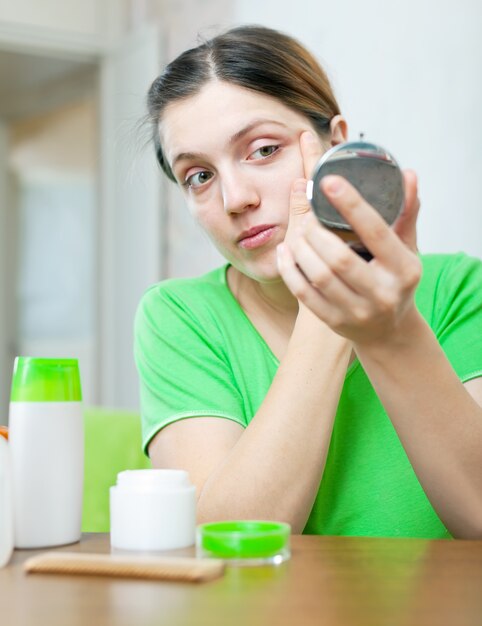Misconceptions about skin care are everywhere. Some people overlook the importance of professional skin cancer screenings, assuming they are unnecessary unless symptoms appear. With so much misinformation circulating, it’s crucial to know the truth. Below, we address some of the most persistent myths about skin health.
Regular skin cancer screenings are essential for early detection and effective treatment. Dermatologists can identify suspicious moles or lesions before they become serious. Early diagnosis significantly increases the chances of successful treatment and reduces the risk of complications.
Myth 1: The Higher the SPF, the Longer You Can Stay in the Sun
The truth is SPF indicates the level of UVB protection a sunscreen provides, not how long you can stay in the sun without reapplying. No matter the SPF level, sunscreen should be reapplied every two hours, especially if you’re sweating, swimming, or spending extended time outdoors. High SPF can create a false sense of security, but frequent application and proper coverage are essential.
Myth 2: Oily Skin Doesn’t Need Moisturizing
Even oily skin requires hydration. Skipping moisturizer can cause your skin to overcompensate by producing more oil, leading to clogged pores and breakouts. Opt for lightweight, non-comedogenic moisturizers designed for oily skin to maintain a healthy balance.
Myth 3: Tanning Beds Are Safer Than Natural Sunlight
Tanning beds expose your skin to concentrated UVA and UVB rays, significantly increasing the risk of skin cancer. According to the American Academy of Dermatology, tanning beds are not a safe alternative to natural sunlight. Protective measures, such as wearing sunscreen and avoiding prolonged exposure, are always the better option.
Myth 4: Popping Pimples Is the Best Way to Get Rid of Them
Popping pimples can push bacteria and debris deeper into the skin. This can cause inflammation, scarring, and delayed healing. Instead, look for over-the-counter products containing salicylic acid or benzoyl peroxide, or consult a dermatologist for appropriate treatments.
Myth 5: You Don’t Need Sunscreen on Cloudy Days
Up to 80% of UV rays can penetrate clouds. This makes sunscreen a daily essential regardless of the weather. Protecting your skin from UV damage can significantly reduce the risk of premature aging, sunspots, and skin cancer.
Myth 6: Skincare Products Can Shrink Pores
Pore size is largely determined by genetics and cannot be physically reduced. While some products can temporarily minimize the appearance of pores by clearing debris or smoothing the skin, they don’t actually shrink them. Keep pores clean with gentle exfoliation and maintain a good cleansing routine.
Myth 7: The More You Exfoliate, the Better Your Skin Will Be
Over-exfoliating can damage the skin’s protective barrier, cause irritation, and lead to redness or dryness. Limit exfoliation to 1 – 2 times per week. Also, choose products tailored to your skin type to exfoliate safely and effectively.
Myth 8: Natural Products Are Always Better for Your Skin
Just because a product is labeled natural doesn’t mean it’s better or safer. Many natural ingredients, like essential oils or certain plant extracts, can irritate sensitive skin. Always review ingredient lists and choose products based on your skin’s needs, not just marketing terms.
The Importance of Skin Health And Skin Cancer Screenings
Taking care of your skin plays a vital role in your overall health. As the body’s largest organ, your skin acts as a protective barrier against harmful environmental factors like UV radiation and pollution. Proper skin care helps maintain hydration, prevent premature aging, and reduce the risk of various skin conditions. Regular skin cancer screenings are also essential, as early detection can significantly improve treatment outcomes. .
Understanding Your Skin Type
Every person’s skin is unique, requiring different products and care routines. Some have oily skin that produces excess sebum, while others struggle with dryness and sensitivity. Combination skin presents a mix of both, making it essential to tailor products accordingly. Knowing your skin type allows you to choose the right treatments and avoid unnecessary irritation.
Common Skincare Mistakes
Many people unknowingly harm their skin with improper skincare habits. Over-washing can strip away natural oils, leaving skin dry and irritated. Using harsh products or skipping sunscreen accelerates aging and increases the risk of damage. Avoiding these mistakes can help maintain a healthy complexion over time.
The Power of Evidence-Based Skincare
Accurate information is essential to maintaining healthy skin. Avoid falling for popular myths and focus on practices supported by science. If you’re unsure about the best skincare routine for you, consulting a board-certified dermatologist can provide personalized recommendations to support your skin health.
Take Away from Debunking Myths About Skin Health
Empower yourself with accurate knowledge to achieve healthy, radiant skin. Focus on evidence-based skin care rather than popular myths. Protect, nourish, and maintain your skin with science-backed practices.
